The Progression in Primary Languages project is led by Dr Rowena Kasprowicz, working in collaboration with Dr Rachel Hawkes.
The project team are supported by Professor Suzanne Graham (Mentor), Professor Carmen Muñoz (Mentor) and by our project partners: Association for Language Learning, National Centre for Excellence in Languages Pedagogy and Research in Primary Languages network.
The project is funded through a UKRI Future Leaders Fellowship.
Dr Rowena Kasprowicz (Principal Investigator)
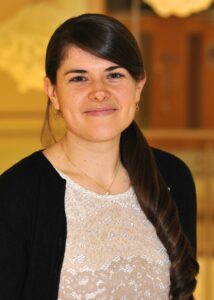
Rowena is a UKRI Future Leaders Fellow and Associate Professor in Second Language Education in the Institute of Education at University of Reading where she leads the Progression in Primary Languages project. Her research expertise is in instructed foreign language learning by young learners, including the effectiveness of explicit instruction for grammar teaching and learning, the role of explicit knowledge in learning, how differences between individual learners mediate the effectiveness of instruction, and the role of technology in language learning. Rowena spent several years teaching German at upper Key Stage 2 across three primary schools in Yorkshire. She is Theme Lead for ‘Linguistic development and expectations’ within the Research in Primary Languages network and was formerly a Research Specialist for the National Centre for Excellence in Languages Pedagogy.
Dr Rachel Hawkes (Collaborator)
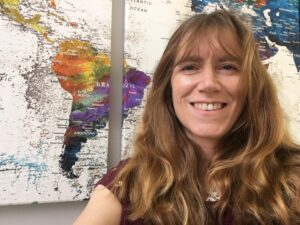 Rachel is Director of International Education and Research and SLE for languages in The CAM Academy Trust and is Co-Director for the National Centre for Excellence in Languages Pedagogy. She is also a former President of ALL, and is author of several languages text books. Rachel has a PhD from the University of Cambridge, focusing on teacher and learner interaction in the secondary languages classroom. As part of the Progression in Primary Languages project, Rachel is leading the development of a new, fully resourced, primary scheme of work for German teaching at Key Stage 2.
Rachel is Director of International Education and Research and SLE for languages in The CAM Academy Trust and is Co-Director for the National Centre for Excellence in Languages Pedagogy. She is also a former President of ALL, and is author of several languages text books. Rachel has a PhD from the University of Cambridge, focusing on teacher and learner interaction in the secondary languages classroom. As part of the Progression in Primary Languages project, Rachel is leading the development of a new, fully resourced, primary scheme of work for German teaching at Key Stage 2.
Dr Hannah Davidson (Post-doctoral Research Associate)
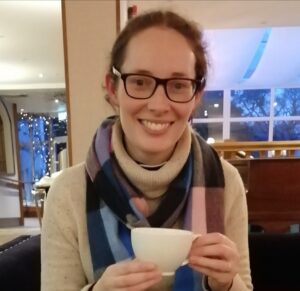
Hannah Davidson is a postdoctoral researcher interested in languages, multilingualism and education. She also works as an outreach officer and lecturer in linguistics at the University of Oxford. She enjoys going into schools to support foreign language teaching and has created content on phonetics, the Francophonie and Creole languages for outreach projects such as Oxplore. For her PhD, she studied Mauritian Creole and explored discourse markers and language attitudes in postdoctoral work before joining the Progression in Primary Languages project.
Dr Nicola Morea (Post-doctoral Research Associate)
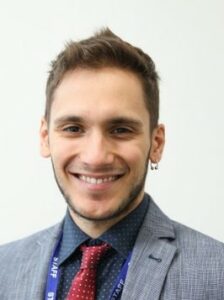 Nicola is a researcher interested in language education, multilingualism and teacher education. He completed a PhD in Language Education at the University of Cambridge. In his doctoral research, Nicola has investigated the multilingual identities and beliefs about multilingualism of pre-service teachers in England, exploring new ways in which Teacher Education and Training providers can prepare future teachers to confidently teach in today’s linguistically diverse classrooms. Nicola has also collaborated on a British-Academy-funded project aimed at mapping school-level language policies across secondary schools in England, led by Prof Karen Forbes (University of Cambridge). Prior to his doctoral studies, Nicola has taught Italian and French in a secondary school in Cambridge, where he has also worked as Head of Department and PGCE Mentor.
Nicola is a researcher interested in language education, multilingualism and teacher education. He completed a PhD in Language Education at the University of Cambridge. In his doctoral research, Nicola has investigated the multilingual identities and beliefs about multilingualism of pre-service teachers in England, exploring new ways in which Teacher Education and Training providers can prepare future teachers to confidently teach in today’s linguistically diverse classrooms. Nicola has also collaborated on a British-Academy-funded project aimed at mapping school-level language policies across secondary schools in England, led by Prof Karen Forbes (University of Cambridge). Prior to his doctoral studies, Nicola has taught Italian and French in a secondary school in Cambridge, where he has also worked as Head of Department and PGCE Mentor.
Carmen Silvestri (Research Associate)
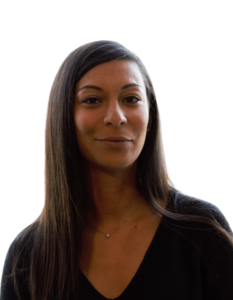 Dr Carmen Silvestri is a researcher interested in multilingual education, heritage languages and language policies. Her PhD project at the University of Essex was a linguistic ethnographic study in an Italian complementary school and it investigated critical pedagogies and how primary school children may develop multilingual identities in education. She is a social activist and a co-opted member of NALDIC (National Association for Language Development in the Curriculum). Prior to her PhD, she worked as a language teacher in five different countries and in 2016, she founded a complementary school in London.
Dr Carmen Silvestri is a researcher interested in multilingual education, heritage languages and language policies. Her PhD project at the University of Essex was a linguistic ethnographic study in an Italian complementary school and it investigated critical pedagogies and how primary school children may develop multilingual identities in education. She is a social activist and a co-opted member of NALDIC (National Association for Language Development in the Curriculum). Prior to her PhD, she worked as a language teacher in five different countries and in 2016, she founded a complementary school in London.
Charlotte Moss (Resource Developer)
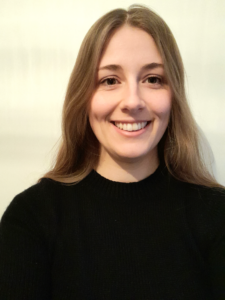 Charlotte is an experienced German Resource Developer and is passionate about motivating students to learn languages through research-informed pedagogy. She previously worked at the National Centre for Excellence for Language Pedagogy where she created resources and assessments for KS3 and KS4 using frequency-based vocabulary, grammar, and phonics exercises. She enjoys introducing pupils to the culture of German-speaking countries and exploring topics that are relevant and interesting to pupils through creative, engaging activities.
Charlotte is an experienced German Resource Developer and is passionate about motivating students to learn languages through research-informed pedagogy. She previously worked at the National Centre for Excellence for Language Pedagogy where she created resources and assessments for KS3 and KS4 using frequency-based vocabulary, grammar, and phonics exercises. She enjoys introducing pupils to the culture of German-speaking countries and exploring topics that are relevant and interesting to pupils through creative, engaging activities.
Jasmin Silver (Research Associate)
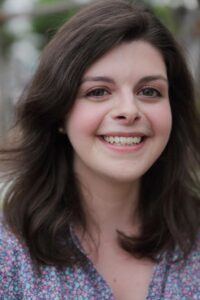 Jasmin is a Research Associate with a background in language education and the development of evidence-based teaching and learning materials. She has a Master’s degree in Research in Second Language Education from the University of Cambridge, a CELTA and a PGCE in Modern Foreign Languages as well as two Master’s degrees in Psychology. Jasmin has over eight years of teaching experience in the UK, South Korea, Germany and online and previously worked at Cambridge University Press & Assessment applying insights from research to enhance the pedagogy of language coursebooks and digital teaching resources.
Jasmin is a Research Associate with a background in language education and the development of evidence-based teaching and learning materials. She has a Master’s degree in Research in Second Language Education from the University of Cambridge, a CELTA and a PGCE in Modern Foreign Languages as well as two Master’s degrees in Psychology. Jasmin has over eight years of teaching experience in the UK, South Korea, Germany and online and previously worked at Cambridge University Press & Assessment applying insights from research to enhance the pedagogy of language coursebooks and digital teaching resources.
Ginevra Festanti (Resource Development Assistant)
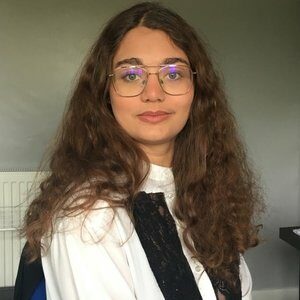 Ginevra is a student at the University of Reading, currently in her fourth year of a BA Modern Languages with QTS course. Originally from Italy, she moved to England as an international student to attend Itchen Sixth Form College in Southampton, where she completed four A-Levels. Ginevra is working towards a career as a Spanish, German, and Italian teacher at Key Stage 3, 4 and 5, but her interest in language teaching also stretches into research. Ginevra is supporting with the development of resources for the Key Stage 2 German scheme of work.
Ginevra is a student at the University of Reading, currently in her fourth year of a BA Modern Languages with QTS course. Originally from Italy, she moved to England as an international student to attend Itchen Sixth Form College in Southampton, where she completed four A-Levels. Ginevra is working towards a career as a Spanish, German, and Italian teacher at Key Stage 3, 4 and 5, but her interest in language teaching also stretches into research. Ginevra is supporting with the development of resources for the Key Stage 2 German scheme of work.
Past team members
Dr Heike Krüsemann (Post-doctoral Research Associate)
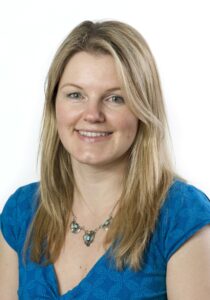 Dr Heike Krüsemann is a language researcher and resource writer with a keen interest in creativity, and a PhD in motivation for language learning. She has many years of experience teaching languages to learners from primary age to adult. Previously Heike has worked on the language learning strand of the Creative Multilingualism Programme led by the University of Oxford, as a member of the language research team at Cambridge University Press, and as a resource developer for the National Centre for Excellence for Language Pedagogy.
Dr Heike Krüsemann is a language researcher and resource writer with a keen interest in creativity, and a PhD in motivation for language learning. She has many years of experience teaching languages to learners from primary age to adult. Previously Heike has worked on the language learning strand of the Creative Multilingualism Programme led by the University of Oxford, as a member of the language research team at Cambridge University Press, and as a resource developer for the National Centre for Excellence for Language Pedagogy.
Heike’s research interests centre on motivation for language learning, culture and creativity, and she is excited to share her enthusiasm for language learning with young learners and their teachers.
Astrid Morrison (Research Associate)
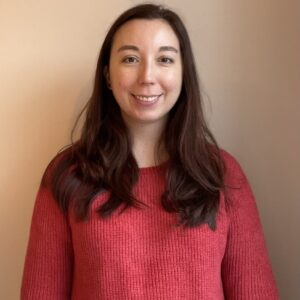 Astrid is an EFL teacher, teacher educator, and a researcher. She is currently in her last year of a PhD in Applied Linguistics where she explores the effects of the communicative function of speaking tasks on oral fluency in L1 and L2 speakers. Aside from L2 fluency, Astrid’s research also focuses on EFL teachers and teacher education, with her recent publications investigating pre-service teachers’ school placements during the pandemic, and how teacher educators adapted their conceptions and practices of online assessment while teaching online. In her professional career, Astrid has also taught English in Chile, and Spanish in the UK. Prior to starting her PhD, she was working in an English Language Teaching programme as a lecturer of Applied Linguistics, tutoring pre-service EFL teachers, and supervising BA dissertations.
Astrid is an EFL teacher, teacher educator, and a researcher. She is currently in her last year of a PhD in Applied Linguistics where she explores the effects of the communicative function of speaking tasks on oral fluency in L1 and L2 speakers. Aside from L2 fluency, Astrid’s research also focuses on EFL teachers and teacher education, with her recent publications investigating pre-service teachers’ school placements during the pandemic, and how teacher educators adapted their conceptions and practices of online assessment while teaching online. In her professional career, Astrid has also taught English in Chile, and Spanish in the UK. Prior to starting her PhD, she was working in an English Language Teaching programme as a lecturer of Applied Linguistics, tutoring pre-service EFL teachers, and supervising BA dissertations.
Helen Gass (Resource Developer)
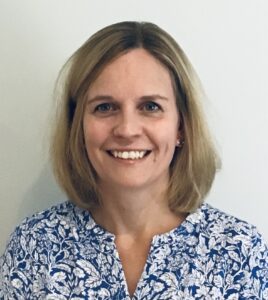 Helen is an experienced teacher and leader of modern languages, delivering French, German and Spanish in schools for 18 years, to students of all ages and abilities, from Key Stage 2 to Key Stage 5. She has enjoyed roles as both Head of Modern Languages and Head of German, and as such has extensive experience of designing and implementing schemes of work, resources and assessments to maximise progression, working within the context of the wider department and school development plans. Helen has worked on many research projects within the school context, focusing on use of pupil & teacher TL, the impact of explicit phonics teaching, assessment, CLIL, reading skills at GCSE, and the use of iPads, and she has a particular passion for creating resources and delivering lessons on literature and film. Helen is excited to join this project to contribute to the development of resources to enable the youngest learners to feel progression in their language learning journey.
Helen is an experienced teacher and leader of modern languages, delivering French, German and Spanish in schools for 18 years, to students of all ages and abilities, from Key Stage 2 to Key Stage 5. She has enjoyed roles as both Head of Modern Languages and Head of German, and as such has extensive experience of designing and implementing schemes of work, resources and assessments to maximise progression, working within the context of the wider department and school development plans. Helen has worked on many research projects within the school context, focusing on use of pupil & teacher TL, the impact of explicit phonics teaching, assessment, CLIL, reading skills at GCSE, and the use of iPads, and she has a particular passion for creating resources and delivering lessons on literature and film. Helen is excited to join this project to contribute to the development of resources to enable the youngest learners to feel progression in their language learning journey.
